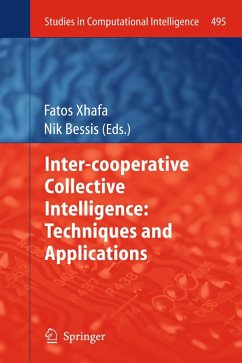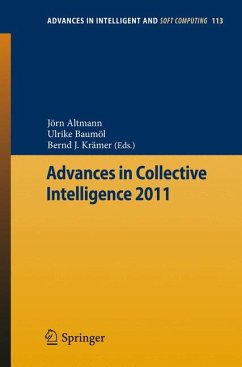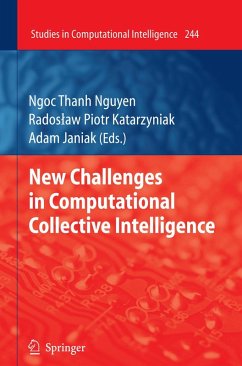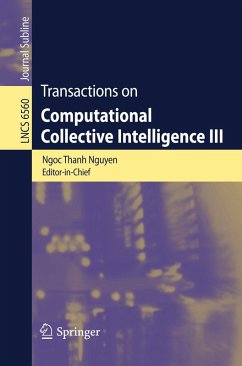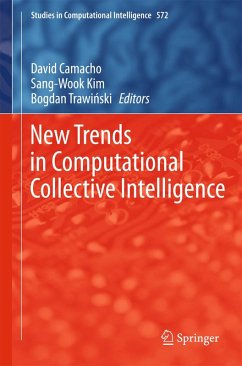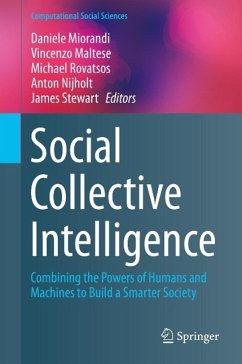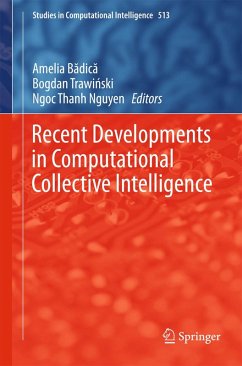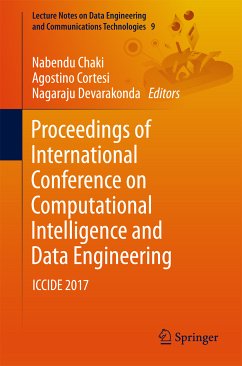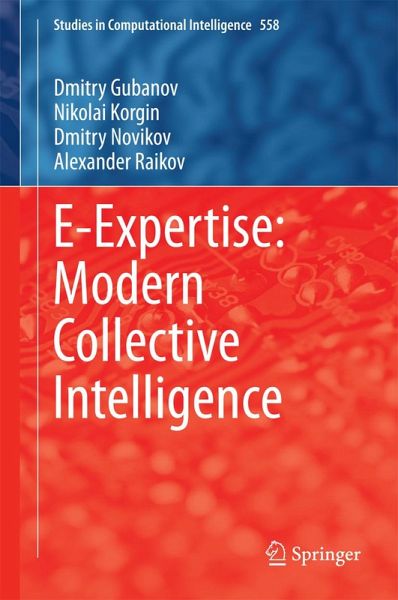
E-Expertise: Modern Collective Intelligence (eBook, PDF)
Versandkostenfrei!
Sofort per Download lieferbar
72,95 €
inkl. MwSt.
Weitere Ausgaben:

PAYBACK Punkte
36 °P sammeln!
This book focuses on organization and mechanisms of expert decision-making support using modern information and communication technologies, as well as information analysis and collective intelligence technologies (electronic expertise or simply e-expertise).Chapter 1 (E-Expertise) discusses the role of e-expertise in decision-making processes. The procedures of e-expertise are classified, their benefits and shortcomings are identified and the efficiency conditions are considered.Chapter 2 (Expert Technologies and Principles) provides a comprehensive overview of modern expert technologies. A sp...
This book focuses on organization and mechanisms of expert decision-making support using modern information and communication technologies, as well as information analysis and collective intelligence technologies (electronic expertise or simply e-expertise).
Chapter 1 (E-Expertise) discusses the role of e-expertise in decision-making processes. The procedures of e-expertise are classified, their benefits and shortcomings are identified and the efficiency conditions are considered.
Chapter 2 (Expert Technologies and Principles) provides a comprehensive overview of modern expert technologies. A special emphasis is placed on the specifics of e-expertise. Moreover, the authors study the feasibility and reasonability of employing well-known methods and approaches in e-expertise.
Chapter 3 (E-Expertise: Organization and Technologies) describes some examples of up-to-date technologies to perform e-expertise.
Chapter 4 (Trust Networks and Competence Networks) deals with the problems of expert finding and grouping by information and communication technologies.
Chapter 5 (Active Expertise) treats the problem of expertise stability against any strategic manipulation by experts or coordinators pursuing individual goals.
The book addresses a wide range of readers interested in management, decision-making and expert activity in political, economic, social and industrial spheres.
Chapter 1 (E-Expertise) discusses the role of e-expertise in decision-making processes. The procedures of e-expertise are classified, their benefits and shortcomings are identified and the efficiency conditions are considered.
Chapter 2 (Expert Technologies and Principles) provides a comprehensive overview of modern expert technologies. A special emphasis is placed on the specifics of e-expertise. Moreover, the authors study the feasibility and reasonability of employing well-known methods and approaches in e-expertise.
Chapter 3 (E-Expertise: Organization and Technologies) describes some examples of up-to-date technologies to perform e-expertise.
Chapter 4 (Trust Networks and Competence Networks) deals with the problems of expert finding and grouping by information and communication technologies.
Chapter 5 (Active Expertise) treats the problem of expertise stability against any strategic manipulation by experts or coordinators pursuing individual goals.
The book addresses a wide range of readers interested in management, decision-making and expert activity in political, economic, social and industrial spheres.
Dieser Download kann aus rechtlichen Gründen nur mit Rechnungsadresse in A, B, BG, CY, CZ, D, DK, EW, E, FIN, F, GR, HR, H, IRL, I, LT, L, LR, M, NL, PL, P, R, S, SLO, SK ausgeliefert werden.




